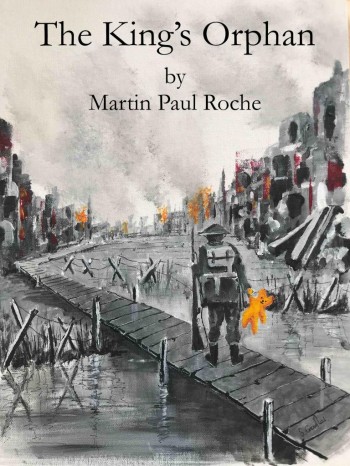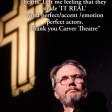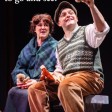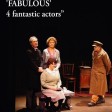For further information concerning licensing, click HERE
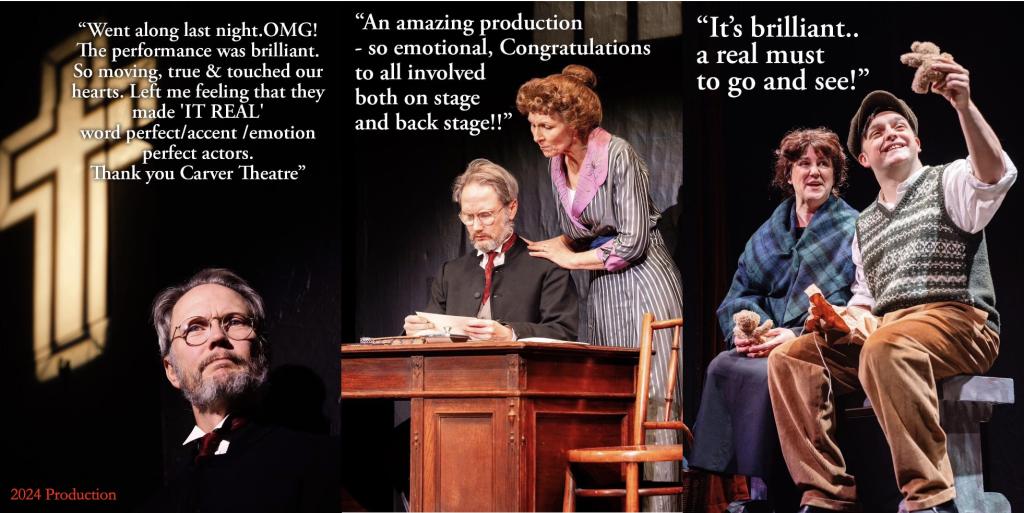
"During the Great War, 116 young men who had attended Blackburn Orphanage in Lancashire, went to war to fight for their King and their Country.
15 of them never returned.
One of them was only recorded by his name, William North ... the forgotten orphan.
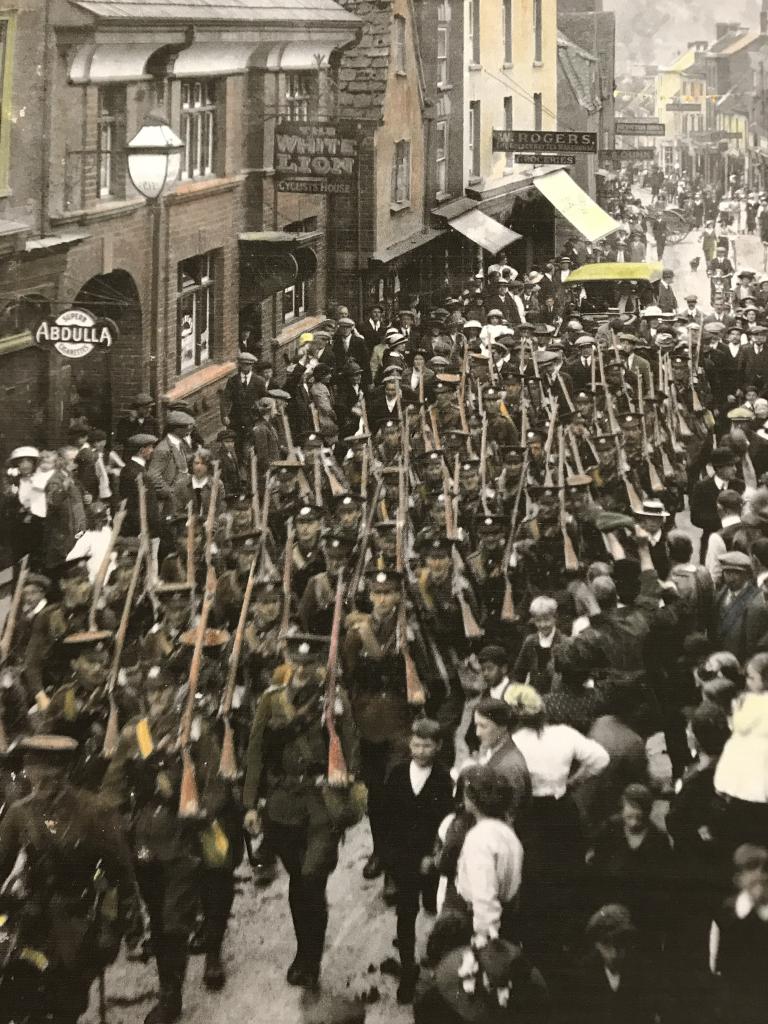
‘The King’s Orphan’ tells the story of the life of an unknown - or rather, creates for him a life, an opportunity to be remembered.
It is not a factual account but gives a glimpse of lives through the cracks in history; an orphan who died for King and Country and who through theatre, is given a chance to take his place in history.
This is one of many stories of how a generation of ordinary men did an extraordinary thing.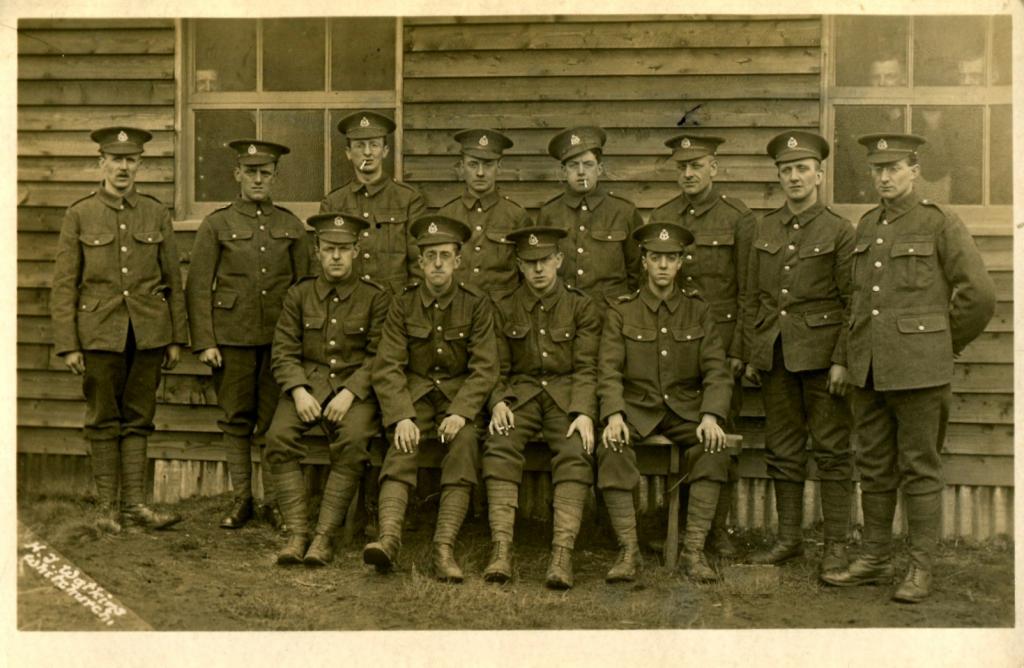
But this story illustrates how some men went to war to fight for something bigger – to fight for a family they did not know and for the families of men they could never know. And in this case, with a set of values, self-respect, dignity and desire for a better life and a better world which all came from one couple; a man and wife that popular history fights to forget: the orphanage founder James Dixon and his wife, Jane.
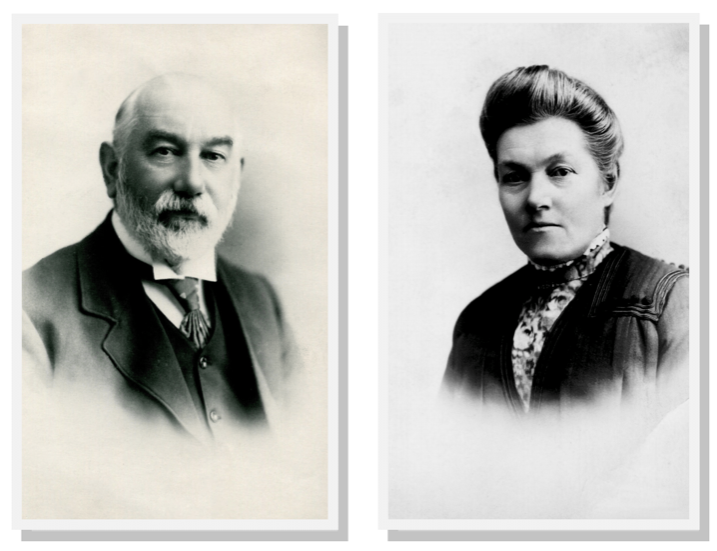
Their Boys may have been orphans. Their Boys may have given their lives for their King. But they did so having been given a special gift from special people. Hope."
A recording of an original poem which features in the play may be found here: https://youtu.be/CjQG7F-myh4
The main image for this play is a commissioned work by the late Steve Crowther. He was an artist living and working in Lancashire. Such a talent, such a soul and taken from us far too soon. Remembered with affection for being a dear friend and a kindred creative spirit.
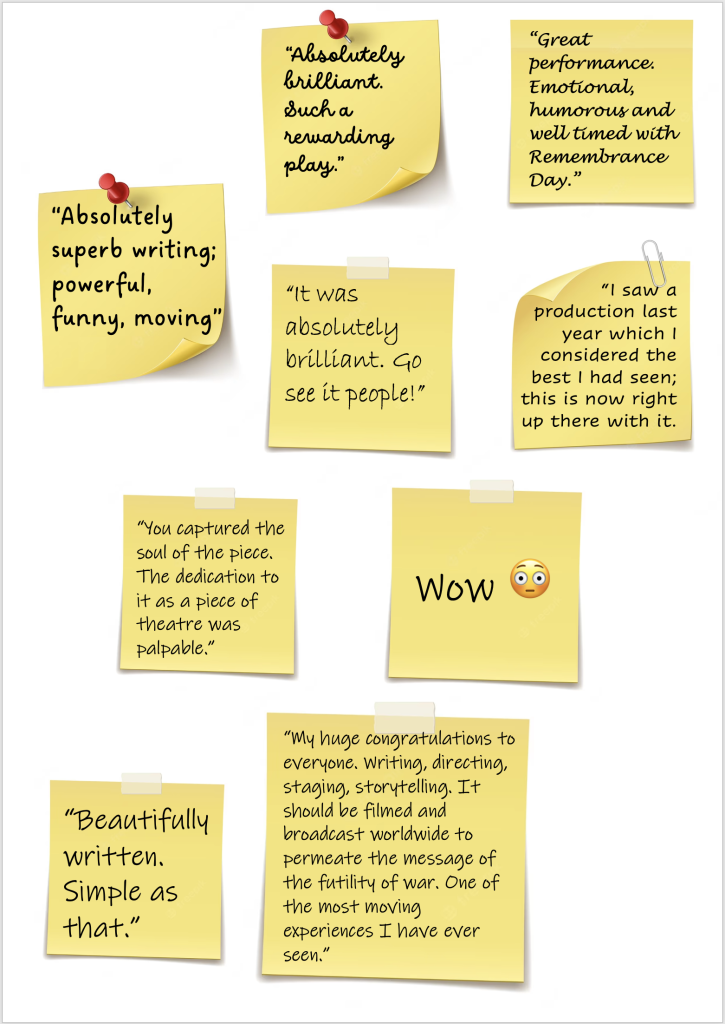
Just some of the audience feedback from the 2024 Carver Theatre production..
Teachers/Lecturers
Although this play is written for four adults, there is no reason why it could not be presented with younger performers. It would therefore be suitable for a co-curricular school/college production. This is particularly relevant as it can be performed in any space with little or no special staging requirements.
If this is something which might interest you, I am more than happy to participate in study sessions exploring the play, the themes, the writing of it or any aspect of the creative process. Equally, if there is a performance local to any schools/colleges, I am happy to do pre/post work with students if a trip is planned. There is no fee incurred for my time.
With this in mind, the performance of the play provides a range of opportunities to explore a variety of themes. Some examples might be:
- The history and timeline of the Great War.
- The social impact within northern communities of the Great War.
- The nature and importance of storytelling within a historical context.
- Poetry as a vehicle for storytelling within theatre.
- The use of poetry at times of conflict.
- The development of social care in Victorian/Edwardian England, caring institutions and the place of philanthropy.
- Factors influencing poverty and deprivation in Victorian/Edwardian England.
- Lessons to be learnt from conflict through the concept of Remembrance.
- The role of religion, faith and patriotism during times of war and conflict.
- Dramatising the past: how do we take the pages of history and turn them into the pages of a script?
- How might this story, the characters, the setting, the attitudes and values need to change if it were set in the present day?
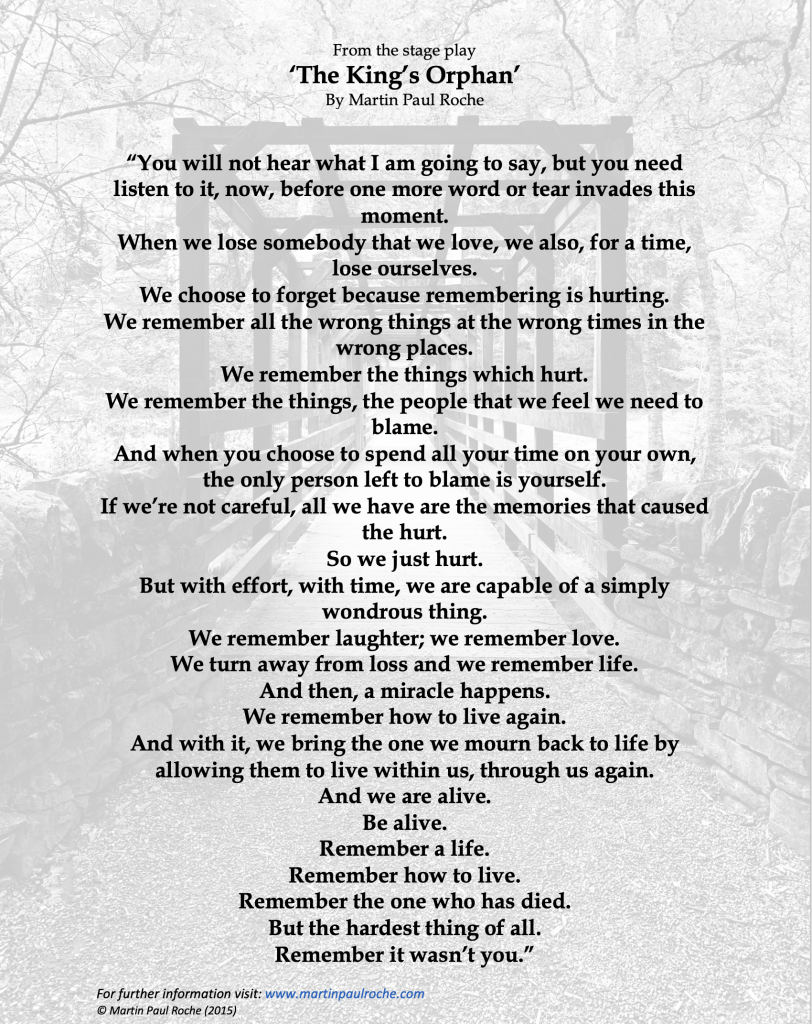
In 2013, a background in working with charities saw me appointed to the Board of Child Action Northwest as a Trustee.
I can remember attending my first Board meeting and being told that a book had recently been published about the history of the charity, its origins as Blackburn Orphanage but moreover, those who pioneered it in the 19th century, husband and wife James and Jane Dixon.
I have to be honest that I paid my £10 for a copy purely out of a sense of obligation, believing that I would never crack the cover of it or read a word. The book was 'James Dixon's Children - The Story of Blackburn Orphanage' by Melanie Warren
It took guilt the following year and a trip to Majorca to confine myself to a chair in the sun and read it.
As I absorbed the book, I made copious notes and cross-referenced local and international history, but I was struggling. After a week of doing more work than I would have done if I had actually been at work, I found I was writing an essay but not progressing a piece of theatre. I figured the problem was finding that fragment of history which would bring the Dixons to life; more importantly, bring what they stood for to life.
The end of the holiday was approaching and I persevered and in chapter twelve of this thirteen chapter book, it suddenly stood out, glaringly obvious. 116 ‘old boys’ had gone to war and 10 had not come back, one of whom was a young man only known by his name William North (local history researchers have since found more old boys who were killed in action but are not recorded in the book). And the second to the last paragraph sealed the purpose of the piece with the last line: “Poignantly, the archives give us no further detail about his death, but like the rest, he would never be forgotten.” But the point was, he had been. His story never got a chance to be told, to be heard.
I then scribbled in the empty space beneath it “…then why not give him a voice.”
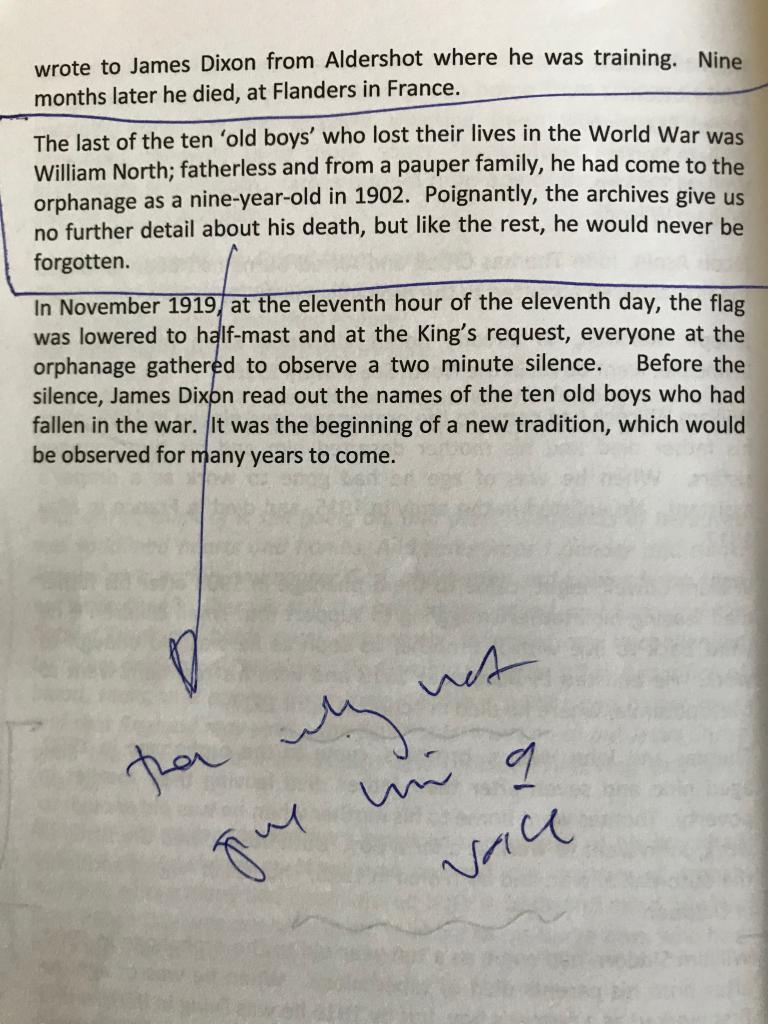
And that was the purpose of the story, of a piece of theatre: to give a life to the orphan and soldier that history had forgotten. To give him, through theatre, the opportunity to be remembered.
So, I created for William a life, a backstory that history had not cared to record and a relationship which I hoped would feel real, credible and add value to him and the narrative. He was real, but the journey I created for him was not. But it had to be true to the journey that a countless number of men had been on and that this story should represent.
Is it right to create a life within history? Well, attributed to Walt Disney is the quote "That's what we storytellers do. We restore order with imagination. We instil hope again and again and again." It sounded right to me. It also sounded right for William North.
Have I done the Dixons and their legacy justice? I hope so. But as I have said so many times, when you buy a theatre ticket, you buy the right to an opinion, so the audience will be the final adjudicators.
The last thing was the title and it could only ever be ‘The King’s Orphan.’ That is who and what William was and how I felt he and so many others, might respectfully be remembered.
I hope those who watch the play will feel the same as I do about it. I hope that they will be touched by James and Jane Dixon and that they will appreciate the essence of the piece, the essence of William and his contemporaries: that everybody is somebody and deserves to be remembered. An aspiration which cannot be allowed to be only found in conflict.

Gallery
Awards
AUDIENCE FEEDBACK
"I have admired the work of Martin Paul Roche for some time now and was really looking forward to his latest play 'The King's Orphan'; I was not disappointed. The script was brilliantly devised calling upon a mixture of well researched fact and truly felt fiction to create a gripping play."
“A very moving story. Portrayed with great empathy.”
“To be honest, if you were asked to join up, seeing this play, you wouldn’t think twice about doing so.”
“A very moving and stirring account brought to the page and stage by the talented Mr Roche!”
“Moments of comedy sandwiched between lovely scenes of tenderness and high drama which were balanced and judged and brought to life by a strong cast, which shared a great chemistry on stage.”
“I know from the reaction of the audience tonight, this production, will be … remembered.”
“We laughed out loud during act 1 and cried like babies during act 2 … loved it! You should be very proud! Martin Paul Roche”
“Huge well done to Martin Paul Roche for creating such a wonderful play. Not a dry eye in the house … simply stunning … so moving - so brilliant.”
“Last night I was in the audience for this premiere. A very moving story, brilliantly written, directed and performed by all. Huge congratulations to Martin Paul Roche and everybody involved. Extremely well done!”
“Just returned home after watching The King’s Orphan ...
What talent, what actors, I thought it was only the wife who could make me cry but Martin you did it too, in fact when I looked at the wife she was at it too! If you’ve been watching Emmerdale, East Enders or Coronation Street tonight give them a miss and see some real acting, remember there’s a seat for you this play. TBH if you were asked to join up, seeing this play, you wouldn’t think twice about doing so.”
“Brilliant play, very moving, superb acting and direction.”
“We were there also this evening. Brilliant play, very moving, superb acting and direction.”
“I’ve had an enjoyable evening at Guide Bridge Theatre tonight watching ‘The Kings Orphan’, even though I’ve blubbed like a baby ... If you can get a ticket you won’t be disappointed.”
“What a gem! ‘The King’s Orphan’ at Guide Bridge Theatre. A script that moves an audience from tears to laughter and back again - not just once but again and again. A powerful piece of theatre Martin Paul Roche.”
